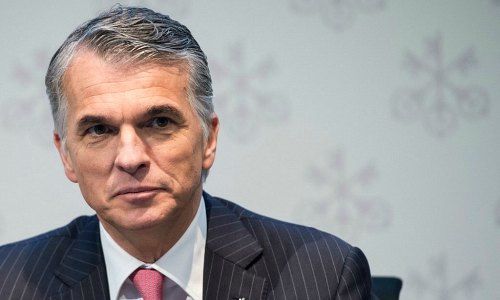As Sergio Ermotti enters his sixth year running UBS, finews.com takes a look at the Swiss bank’s bench of talent who could succeed him.
Sergio Ermotti turns 57 this year, but he has shown little sign of slowing down and given few indications that he is tired of the job.
Asked by Swiss daily «Neue Zuercher Zeitung» (in German) last month about his plans, the CEO said he likes his job and still has much to do: «I haven’t given myself a timeline.»
This hasn’t stopped bank insiders from speculating about who could inherit the job from Ermotti, who is six years into his tenure.
The former Merrill Lynch and Unicredit banker has repaired much of UBS’ scandal-tarnished image, settling a host of probes on everything from rate-rigging to manipulating gold prices and foreign exchange rates.
Ermotti's Own Timing
He has managed to keep formerly scandal-probe UBS out of new ones, save for a Hong Kong investigation into initial public offerings.
Ermotti has evolved from an investment banker obsessed with implementing strategy into an eloquent voice for business in Swiss politics. He has done well for UBS and, barring an unexpected scandal or an internal power play, the bank’s board is likely to respect Ermotti’s wishes on the timing of his resignation.
Given the average shelf life of a big bank CEO is roughly seven years, UBS chairman Axel Weber and the three other members tasked with succession would be remiss if they were not drawing up similar internal shortlists as well as putting out at least tentative feelers for external candidates.
Deep Internal Talent Bench
Companies as well-positioned as UBS is on market share, strategy and capital usually opt for an internal solution, headhunter Guido Schilling wrote for finews.first last week.
To be sure, the Swiss bank could still hire a new CEO from outside – electing for a banker with tech expertise and experience, for example.
When asked about succession, the bank has always demurred while insisting that it has a deep bench of internal talent. finews.com took a look at those, and estimated their chances of inheriting the top job when Ermotti chooses to leave.
Tom Naratil
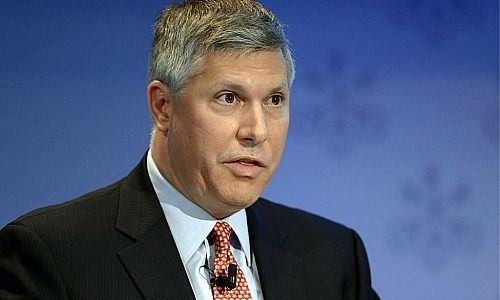
The UBS «lifer» has served in various key roles at UBS: he earned plaudits in the U.S. for heading an auction-rate securities clean-up effort in the financial crisis, and was rewarded with the top finance job in Zurich as 2011.
His precise, surgical manner provided a perfect foil for Ermotti’s more temperamental one. Naratil, who is American, moved back to the U.S. this year to replace brokerage icon Robert McCann as well as run the wider Americas business. There, he has wasted little time in putting his stamp on the former Paine Webber unit and has won praise with an novel method to remove UBS from costly price wars over brokers.
Naratil enjoys good relations with the Swiss regulator from his time as finance chief, but his lack of a Swiss passport make him a dark horse candidate for CEO, especially since UBS’ current chairman isn’t Swiss either – former Bundesbanker Axel Weber is German.
finews.com CEO forecast: 40 percent probability
Ulrich Koerner
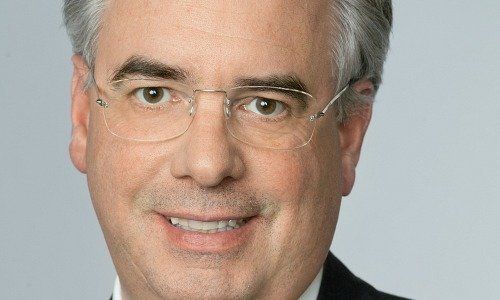
The former McKinsey consultant and Credit Suisse top executive’s ambitions are an open secret: he has long yearned for a CEO job. He undoubtedly has the intellectual chops for the job too, and he has come close. Koerner previously served as operating chief and finance head at Credit Suisse before moving to the top operating job at UBS during the financial crisis.
The four-year period which followed highlights what Koerner does best: he is cooly analytical and can implement ruthlessly, and the bank leant on these talents heavily during its post-crisis revamp. The German-Swiss banker was unsuccessful in efforts in 2011 to hijack the succession process which eventually enthroned Ermotti as CEO, according to several sources familiar with the matter.
Koerner moved to a business role three years ago, running the Swiss bank’s laggard asset management division. There, he set up a 1 billion Swiss franc profit target for the unit. However, he has yet to grant an interview or make many public appearances of the sort favored by the cozy circle of Swiss establishment bankers.
It’s a small point which highlights one of Koerner’s major weaknesses: he doesn't suffer fools gladly, and can come across as humorless, aloof and condescending. Those who have worked with him see his difficulty in appearing relatable and in motivating a wider swath of bank employees as a crippling factor in his ambitions.
finews.com forecast: 0 percent probability
Axel Lehmann
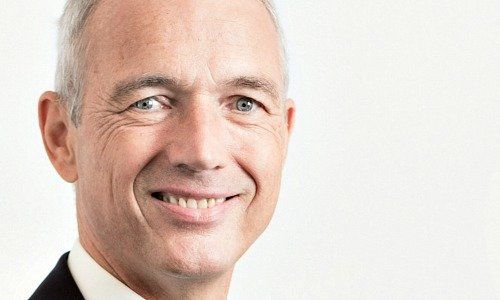
One of finews.com's big winners last year, UBS' operating chief appears to be in pole position to succeed Ermotti. At 58, Lehmann is actually older than Ermotti, but has just rejuvenated his career by moving to the Swiss bank after years at Zurich Insurance.
Swiss born and with a PhD in economics, he is exactly what the bank would look for in a figurehead. Lehmann is a specialist for risk management and process optimization, has experience abroad, isn't actually a banker and may be able to more easily break with conservative thinking at a time when banks are under threat from fintechs, for example.
finews.com forecast: 70 percent probability
Juerg Zeltner
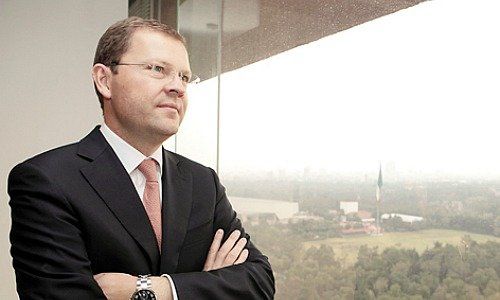
As boss of UBS' flagship private bank, the largest in the world, Zelter is almost predestined to take the helm when Ermotti leaves. Like Ulrich Koerner (see above), the native Bernese made a play for the top job in 2011, which Ermotti eventually won – a past all three top executives have chosen to bury.
Zeltner has now waited six years and counting to inherit Ermotti's job, but his chances of doing so have actually slimmed. Without question, he has made crucial changes to UBS' private bank in recent years and put his imprint on the world's largest wealth manager. A UBS veteran, he knows the bank inside and out and is very comfortable in an international setting such as Asia, an increasingly important market for the bank.
But Zeltner lacks the power base necessary to lock in the top job. In addition, his star has fallen recently, making a promotion to the top role difficult: he issued an unconventional call for UBS to lower its sights (in German) and voiced frustration over sinking margins – not the best prerequisite to inherit the top job.
finews.com forecast: 20 percent probability
- Page 1 of 2
- Next >>

